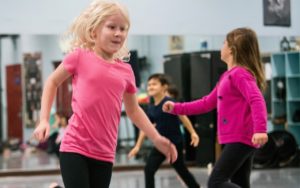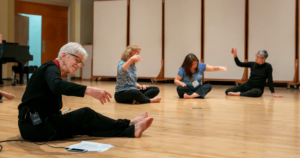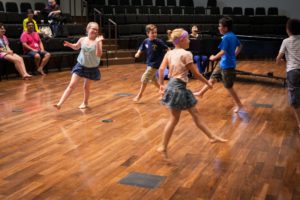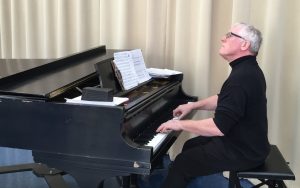Posts Tagged ‘Pedagogy’
Incitation and Inhibition: A Means to Internalize
by Jeremy Dittus and Eiko Ishizuka The Dalcrozian strategy/technique of incitation and inhibition exists in virtually every reaction exercise we do in eurhythmics, solfège, and improvisation. Simply put, incitation describes the desire to do something while inhibition describes the feeling of suppressing or denying that desire. Because of their symbiotic nature, incitation and inhibition typically…
Read MoreIntroducing: “Dalcroze Education for Youth”
Designed for New Dalcroze Teachers Have you ever taught a Dalcroze class to children ages 4-6? Or perhaps you are working on the pedagogy requirements towards Dalcroze certification and plan to do your practice teaching with this age group? Maybe you are thinking of creating a new course for 4-6 year olds in the near…
Read MoreCanons in the Dalcroze Classroom
When I was 8 or 9 years old, my mother had me listen to Franck’s Violin and Piano Sonata – she had just bought the LP and she thought I’d be interested in the 4th movement. We were the sort of family that was always singing rounds, but this was the first time I’d heard a…
Read MoreMusical Explorations into Meter
Part of a series of posts on the ‘musical subjects‘ I am working with in my classrooms and thinking about as a musician and teacher. You can find more of my writing on music and teaching from a Dalcroze perspective on my blog at https://joviala.com. I often turn to Walter Piston when I want some…
Read MoreUsing Recorded Music in a Dalcroze Class
Today’s Dalcroze teacher has easy access to a world of recorded sound that would have been unfathomable to M. Jaques. How do we take advantage of this rich resource and still retain the essence of eurhythmics? Louise Mathieu helps us sort through the issues in this reprint from the American Dalcroze Journal (Vol. 23, No.…
Read MoreDalcroze Pedagogy: Motivating Repetition and Improving Movement
(adapted from Dittus’s Embodying Music) In each lesson, Dalcroze students will need to engage in a fair amount of repetition until they achieve mastery or automatization of the required skill. This takes time and energy for the student and requires the instructor’s watchful eye to ensure that the students are sufficiently challenged and engaged. Furthermore,…
Read MoreLesson Plan: Waltz of the Flowers
This lesson can be used for a wide range of ages and abilities. It may also be adjusted to fit a variety of classroom goals and settings. It explores measure groupings of 3’s and 4’s. Enjoy and please feel free to make it your own! Activity 1: Walks & Bows “Show me how you take…
Read MoreLesson Plan Editorial: Andante from Symphony No. 5
A few weeks ago, we released Joy Yelin’s lesson on subdivision, which uses the Andante from Beethoven’s Symphony No. 5. It is such a delight to use this familiar theme. With some tweaks here and there, I enjoy playing the marvelous melody, harmony and modulations of Ludwig van Beethoven’s “Andante.” The students move with rapt…
Read MoreLesson Plan: Andante from Symphony No. 5
It is such a delight to use this familiar theme. With some tweaks here and there, I enjoy playing the marvelous melody, harmony and modulations of Ludwig van Beethoven’s “Andante.” The students move with rapt attention, responding to the subdivisions of the beat which are inherent in the music. Begin with a slow tempo. The…
Read MoreLesson Plan: Living Music: Eurhythmics and Jazz Improvisation
This lesson was first presented at a New England Dalcroze Chapter Workshop, January 27, 2019, and is designed for adults of all levels. In this lesson, students develop some of the basic skills that go into jazz improvisation, working in various musical styles. Through their improvised movements, students experience the relationship between beat and measure…
Read More








